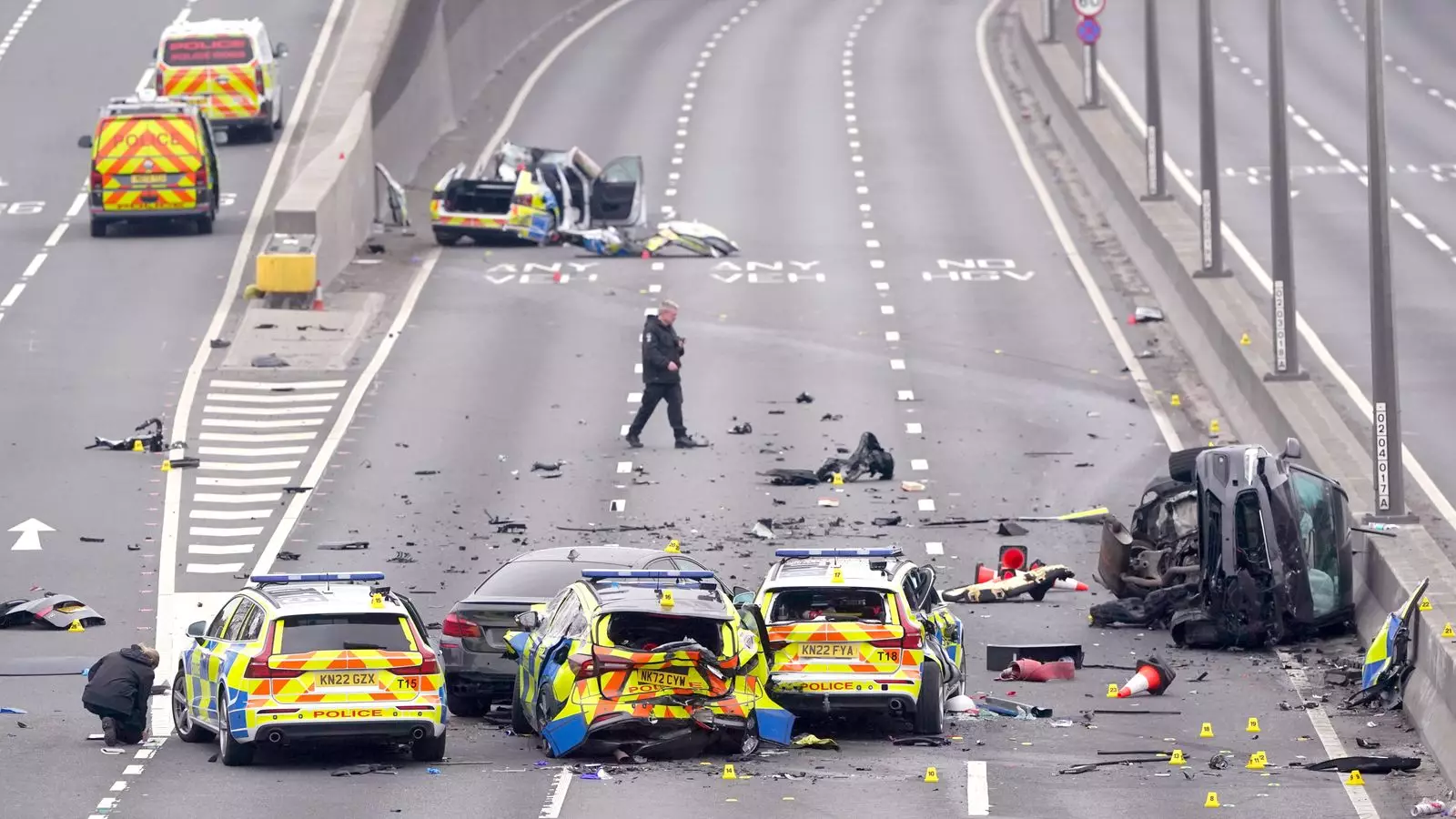The tragic incident involving 20-year-old personal trainer Mazyar Azarbonyad serves as an alarming reminder of the lethal consequences of irresponsible driving. In a reckless moment, Azarbonyad not only altered his own future, but he also jeopardized the lives of seven police officers and countless others on the bustling A1 highway in Tyneside. The details surrounding this case illustrate not merely a lapse in judgment, but a grave misunderstanding of personal responsibility in an age where the consequences of one’s actions can ripple outward into a community.
When individuals choose to act on impulse, the results can be catastrophic. Azarbonyad’s decision to drive a powerful BMW, which was allegedly under dubious circumstances, stands as a jarring example. Initially, the defendant was merely giving a woman a ride after what was presumably an enjoyable first date. Yet, this seemingly innocent action took a perilous turn when he decided to flee police concerns regarding his driving. Instead of engaging rationally with law enforcement, he opted for dangerous evasion, setting in motion a chain of events that led to a chaotic crash involving multiple police vehicles.
A Cascade of Errors
The situation escalated when Azarbonyad was charged with dangerous driving after what can only be described as a reckless series of choices. The destruction he caused was of extreme magnitude—one police vehicle collided with his car at speeds approaching 80 mph, effectively ending any notion of control in this increasingly volatile situation. This was not just a minor traffic altercation; it was a catastrophic collision that severed lives and disrupted the fabric of community safety.
The prosecutor’s words resonate painfully: Azarbonyad showed a blatant disregard for both the law and the lives of those around him. In court, this disturbing behavior was revealed to be systemic; only days after the crash, he continued to drive without insurance or a license, directly defying the conditions placed upon him by authorities. What compels an individual to act so recklessly after having already faced dire consequences? The answer may reflect a deeper sense of entitlement or an inability to accept personal accountability.
A Token of Regret?
Defending Azarbonyad painted a perhaps overly sympathetic picture of a young man who simply found himself in an unforeseen predicament. While his attorney expressed the defendant’s “genuine remorse,” the idea that panic could justify his ensuing choices is dubious at best. Azarbonyad’s acknowledgment of his reckless driving only seems to emerge after a simple sequence of events turned disastrous. His admission feels less like a heartfelt confession and more like a calculated step to reduce the inevitable fallout from his actions.
On one hand, it is commendable that he eventually slowed down and signaled his intentions. Yet, this doesn’t absolve him of the reckless decision-making that led to a harrowing crash. If anything, it only underscores the disparity between his momentary actions and the severity of the outcome; when faced with the consequences of his choices, he is now presented as a remorseful figure, but should we view him as merely a misguided youth or a genuine threat to public safety?
Legal Consequences and Societal Reflection
With a court date rapidly approaching, the broader implications of this case extend well beyond Mazyar Azarbonyad. Society must confront the troubling trend of reckless driving among young adults—an alarming phenomenon fueled by a culture that often glorifies speed and thrill-seeking behavior without a clear understanding of the potential repercussions. This case shines a light on our collective responsibility to foster an environment where the sanctity of life is prioritized over reckless pursuits.
Ultimately, what encapsulates Azarbonyad’s story is a striking call for accountability and better societal education about driving safety, especially for young individuals who may underestimate the risks involved. His actions serve not as a mere case of youthful exuberance gone awry, but as a compass pointing towards a pressing need to rethink how we address issues of driving behavior, responsibility, and the cultural narratives that shape it. Society has a crucial opportunity here—not just to punish but to educate and reform.

Leave a Reply